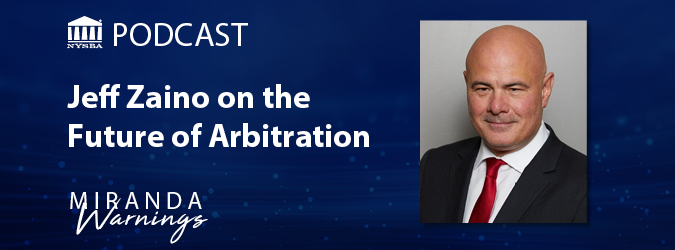Understanding Bias and Strategies to Interrupt Bias
12.27.2022
New York State Bar Association President-Elect Dick Lewis told 300 people attending a program on implicit bias that unconscious stereotypes plague all of us and “we need to be aware of it.”
He pointed out that these beliefs can impact our thoughts about people of different ethnic groups, religious and political persuasions.
The NYSBA webinar, “Communication Across Differences: Why Interrupting Biases Matter,” is available on demand at nysba.org. The Women in Law section, the Committee on Diversity, Equity and Inclusion and the Committee on Continuing Legal Education sponsored the event and it featured Mirna Santiago and Lillian Moy.
Santiago of Girls Rule the Law defined interrupting bias as recognizing a biased thought and stopping it before acting on it. “We can’t eliminate bias, but we can catch biases when they happen so we can drop them before we do something,” she said.
Implicit Bias Defined
Unconscious bias can come from our family, friends, teachers and the media. They can be subtle and guide our expectations and interactions with others. To drive home the point, she showed a picture with fill in the blanks asking the attendees to think about how many stereotypes are present.
Examples include:
| Angry ____ Woman |
| Poor ____ Trash |
| Cheap ____ |
| ______ Mafia |
| _____ Terrorist |
Strategies to Stop the Bias
Moy of the Legal Aid Society of Northeastern New York said that once we understand the bias, we can work on how to change or stop those feelings.
She showed an example of what to do if you have unknowingly used language that someone else finds offensive.
Scenario: You unintentionally use a term that is offensive to a person who is disabled such as “challenged, handicapped or differently abled.” In response, that person tells you they are offended. What do you do?
Response: You apologize for the mistake and say, “help me to understand and I will do better next time.” The experts also reminded attendees that using people first language can be helpful as in “a woman with cerebral palsy or a man who is disabled.”
Asking why someone is offended may help you to better understand the other person’s point of view. If you are the offended party, Moy and Santiago encourages giving folks the benefit of the doubt as most people are well-intentioned. Terms and acceptable language are changing often and everyone isn’t up to speed.
Finally, it’s OK to feel uncomfortable, the experts say. If you are not uncomfortable, then you may not be learning and growing as a person.






